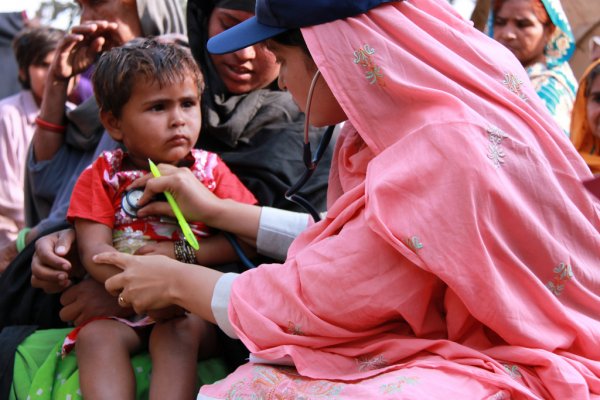Overview
Febrile illness is one of the most common reasons for healthcare visits globally. In malaria endemic countries, malaria was historically assumed to be the cause of fever, however, the advent of rapid diagnostic tests, combined with intensified malaria control activities over the last decade, has substantially reduced malaria incidence rates, leading to a situation where acute fever cases are often of non-malaria aetiology.

Diseases such as typhoid, leptospirosis, rickettsioses, community-acquired bacteraemia, viral infections and others are among the important causes of fever that require specific treatment approaches, but that currently cannot be diagnosed accurately in the vast majority of healthcare settings in tropical and subtropical regions.
In order to map the main causes of fever - once malaria has been excluded - researchers associated with WorldWide Antimalarial Network (WWARN); the Infectious Diseases Data Observatory (IDDO) at the University of Oxford, the Foundation for Innovative New Diagnostics (FIND), London School of Hygiene & Tropical Medicine, University of Otago, University of Hong Kong, Fundação Oswaldo Cruz (Fiocruz), and the MORU Tropical Health Network - Lao-Oxford-Mahosot Hospital-Wellcome Trust Research Unit (LOMWRU) and Cambodia-Oxford Medical Research Unit (COMRU) have conducted thorough systematic reviews of the published literature for all malaria-endemic regions to provide more comprehensive data than anything else available to date.
The results of these comprehensive reviews have been incorporated into an open access, online database that supports an interactive map that can filter data by country, microorganism type, patient age, sample type, pathogen family, genus and species, study year, geographic region and sub-region.
About the non-malarial febrile illness (NMFI) Map
The interactive map is designed to make the data easily accessible to:
- those involved in advising on or developing case management guidelines and policy on global, regional and national levels;
- researchers designing prospective clinical and epidemiological studies of non-malarial pathogens, and implementation research on case management strategies;
- diagnostic development partnerships.
The work to date has been published as a new series in BMC Medicine.
For further information please contact us at: info@iddo.org

